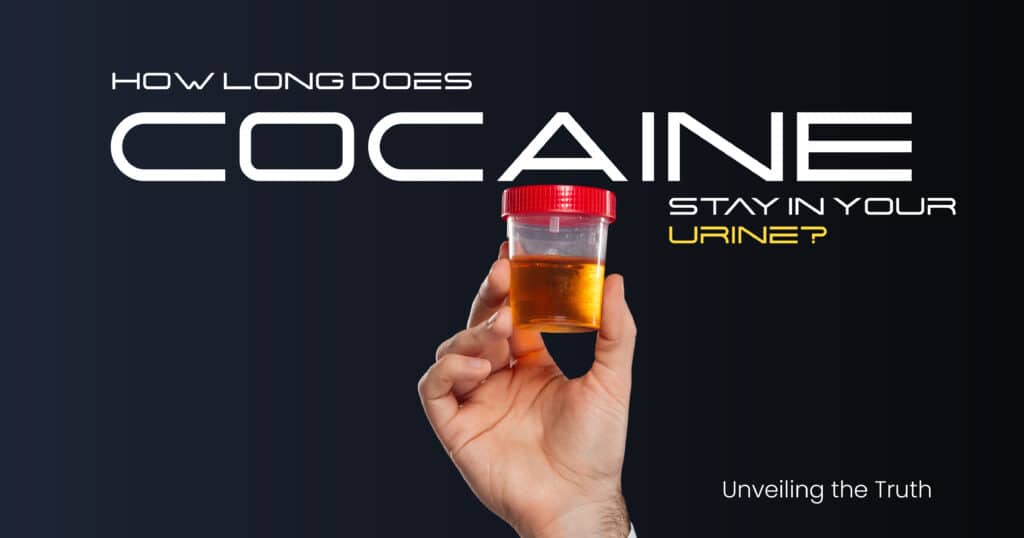
Cocaine, a powerful stimulant, has caught the attention of individuals from all walks of life, but how long does it linger in your urine? This comprehensive guide aims to shed light on the duration of cocaine in urine, exploring the various factors that influence detection times, testing methods commonly employed, and tips to enhance the elimination process.
The Effects of Cocaine
Before diving into the topic of urine detection, it’s crucial to understand the impact cocaine has on the body and mind. Cocaine acts as a powerful central nervous system stimulant, leading to a surge in energy, euphoria, heightened alertness, and potentially dangerous health consequences.
Factors Affecting Detection Time
Determining how long cocaine stays in urine can be challenging due to the multitude of factors that come into play. Here are the key influencers:
- Dosage and Frequency: The amount of cocaine consumed and the frequency of usage directly impact detection times. Larger doses and more frequent usage tend to extend detection durations.
- Metabolism: Each person’s metabolism is unique, and individuals with faster metabolic rates generally eliminate the drug from their systems quicker than those with slower metabolisms.
- Urine pH: The body’s urinary pH level can affect the detection window. Alkaline urine tends to allow cocaine to remain detectable for longer periods, as opposed to acidic urine.
- Overall Health: Physical health plays a significant role, as individuals with well-functioning organs, especially the liver and kidneys, are often better equipped to eliminate cocaine efficiently.
- Hydration: Adequate hydration helps flush out toxins from the body, potentially reducing the detection window for cocaine in urine.
- Age: Age can influence drug detection duration, as younger individuals tend to metabolize drugs more quickly compared to older adults.
Testing Methods for Cocaine in Urine
- Immunoassay Screening: The primary method of initial detection, immunoassay screening relies on antibodies that react with cocaine metabolites to indicate the presence of the drug in two ways: through color change or a fluorescence reaction.
- Gas Chromatography/Mass Spectrometry (GC/MS): As a more accurate confirmatory test, GC/MS analyzes the urine sample to identify and quantify cocaine and its metabolites unequivocally.
- Enzyme-Linked Immunosorbent Assay (ELISA): ELISA is commonly used as a screening method due to its cost-effectiveness; however, it may present the risk of false positives. A positive ELISA result still requires confirmation via GC/MS.
How Long Does Cocaine Stay in Your Urine?
- Detection Window: On average, cocaine can be detected in urine for up to three days. However, heavy and chronic cocaine users may test positive for up to two weeks.
- The Half-Life of Cocaine: Cocaine has a relatively short half-life, ranging from 30 minutes to two hours. This means that the drug may be eliminated from the body fairly quickly, depending on individual factors.
- Metabolites: Cocaine metabolizes into benzoylecgonine, which remains detectable in urine long after the drug itself has been eliminated.
How to Speed up Cocaine Elimination
While time is the ultimate factor in eliminating cocaine from the body, there are a few measures individuals can take to potentially expedite the process:
- Hydration: Staying adequately hydrated encourages increased urine production and aids in flushing out toxins.
- Regular Exercise: Engaging in physical activity and sweating can facilitate the removal of metabolites through the skin.
- Healthy Diet: Consuming a balanced diet consisting of fruits, vegetables, and lean proteins provides the body with essential nutrients to support optimal organ function.
FAQs about Cocaine Detection in Urine
Can second-hand cocaine exposure cause positive urine test results?
While limited, the possibility of low levels of cocaine metabolites appearing in urine as a result of passive exposure to the drug is possible. However, it is essential to distinguish between secondhand exposure and active cocaine use for accurate interpretation.
How long does one-time cocaine use stay in the urine?
For infrequent or one-time users, cocaine typically remains detectable for up to three days, although it may be cleared from the system in less time depending on individual factors.
This place literally saved my life and gave me the courage to admit my flaws and shortcomings. Everyone around me saw my self destruction except ME! I tried tons of different approaches, but 100% – OPUS guided me into my soul to find my true self hiding, rescued him, and brought light back to my life. – Scott
The Duration May Vary
In conclusion, the length of time cocaine remains detectable in urine depends on various factors, including dosage, frequency of use, metabolism, urine pH, overall health, and age. Testing methods such as immunoassay screening, GC/MS, and ELISA provide accurate detection capabilities, with urine testing generally able to detect cocaine for up to three days. However, the presence of benzoylecgonine, a metabolite of cocaine, can extend the detection window. By adopting healthy practices like hydration, exercise, and a balanced diet, individuals can potentially expedite the elimination process. Remember, detecting the presence of cocaine in urine does not equate to impairment; it primarily indicates recent drug use.
The treatment experience differs for everyone, but that’s what makes it successful. Opus Health helps adults overcome addiction through evidence-based, medically supervised treatment in Orange County, California. Our evidence-based treatment methods are designed to focus on each patient’s specific conditions, hopes, and goals.



